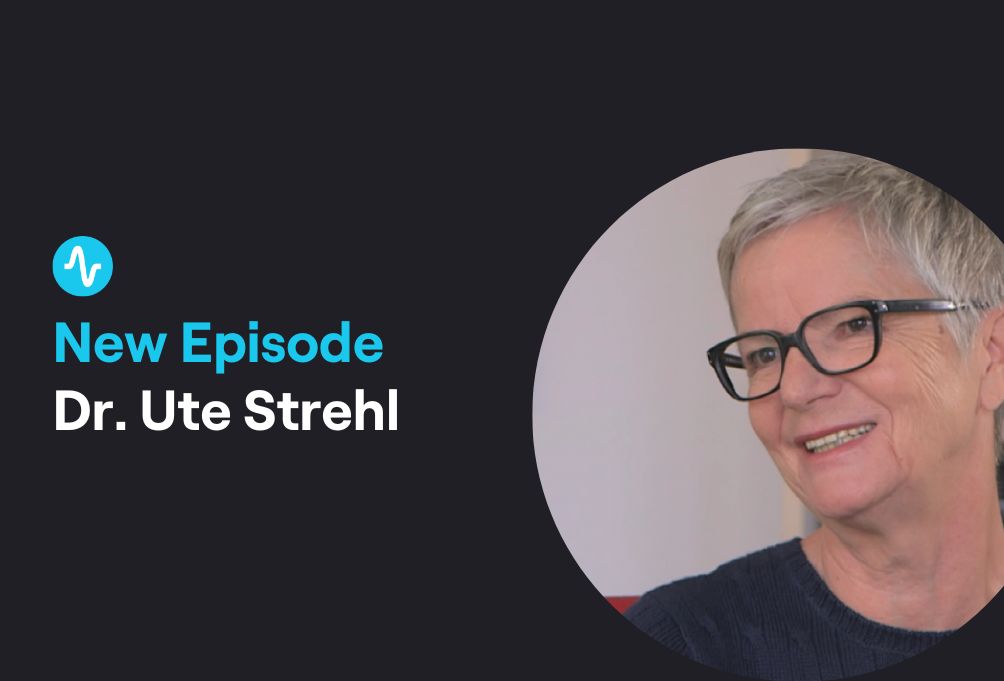The Phenomena of Slow Cortical Potentials Neurofeedback, with Dr. Ute Strehl
October 6, 2022 - neurocare group

Slow cortical potentials (SCP) are slow, event-related direct-current shifts that clinicians can measure in an electroencephalogram (EEG). Being able to measure and control them is proving to be a promising treatment for people with attention deficit hyperactivity disorder (ADHD). One of the scientists at the forefront of this development is Dr. Ute Strehl. We caught up with Dr. Strehl to find out more about her research and how patients can benefit from this treatment option.
A Bit of Background
Dr. Ute Strehl was a long-standing key researcher at the University of Tuebingen in southwest Germany. One of Germany’s oldest universities, Tuebingen has been home to renowned scientists since 1477.
When it comes to the development of neuroscience and its practical applications, Professor Niels Birbaumer was one of the authorities in the field. Having started pioneering work with biofeedback in the 1970s, Professor Birbaumer became Dr. Strehl’s supervisor for her doctoral thesis on epilepsy and behaviour in 2001. Her work showed the potential of SCP neurofeedback.
“We were always questioning ourselves”, says Dr. Strehl. “Later on, we concluded that in different neurofeedback loops similar mechanisms are at work improving the feedback between the cortex and the thalamus. By improving these feedback loops patients will be able to inhibit epileptic seizures at the very moment when they arise.”
Treatment-Resistant Epilepsy
Together with her colleagues, Dr. Strehl developed an ambitious, intense treatment plan with 30 sessions to help patients self-regulate their seizures. Dr. Strehl explains: “Our treatment plan consists of three blocks of ten sessions over ten days broken up by four to six-week breaks with “homework”. Whilst some therapists feel this is too much, we have found that it works best for the patients in our clinical research.”
In Dr. Strehl’s experience, few patients require booster sessions if they followed this intense schedule. If their treatment followed a less intense programme, more booster sessions are needed. Patients who followed the intense schedule reported that they could sustain their ability to control seizures for years.
ADHD
Dr. Strehl and her team applied their findings to children suffering from ADHD to see whether they could learn to self-regulate.
Just as they had done with epilepsy patients, they conducted a combination of sessions including feedback and others without feedback, so-called transfer sessions. Transfer sessions allowed them to see how the participants would use their abilities.
“Without transfer sessions, the training is almost senseless”, cautions Dr. Strehl. “You have to introduce transfer sessions when you are using SCP with your patients, and you have to do it as early as possible.”
To truly prove their findings and counteract criticisms of placebo effects, the team chose to follow up with participants for a long period. For ADHD they chose to follow up after one year and two years, respectively.
The entire group of participants showed that even two years after treatment they were able to regulate their condition. “You could say they did not have the condition anymore”, concludes Dr. Strehl.
A Look at the Future
Research into neurofeedback and SCPs continues to progress. Because of the long treatment schedules required, research remains challenging.
Applying these research results in a clinical setting relies on more psychiatrists and psychologists taking up the mantle and educating themselves. In addition, patients have to be compliant with the treatment and choose neurofeedback over medication.
Electroencephalogram (EEG) equipment has become more reliable and valid, and it is becoming more affordable for clinicians to invest in.






